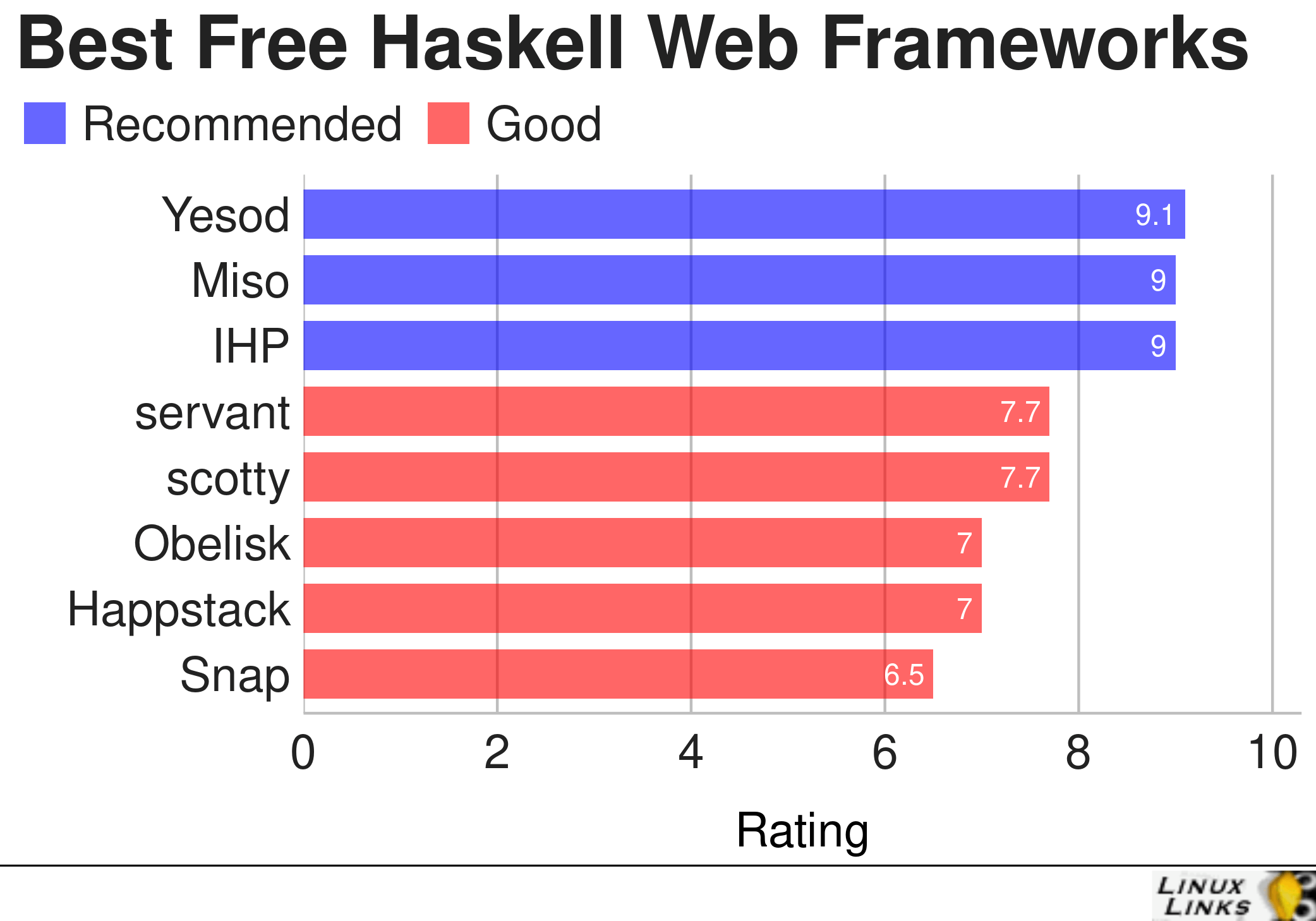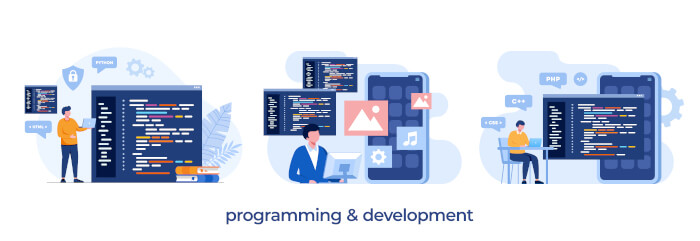Last Updated on May 26, 2022
One of the types of software that’s important for a web developer is the web framework. A framework “is a code library that makes a developer’s life easier when building reliable, scalable, and maintainable web applications” by providing reusable code or extensions for common operations. By saving development time, developers can concentrate on application logic rather than mundane elements.
A web framework offers the developer a choice about how to solve a specific problem. By using a framework, a developer lets the framework control portions of their application. While it’s perfectly possible to code a web application without using a framework, it’s more practical to use one.
Haskell is a standardized, general-purpose, polymorphically statically typed, lazy, purely functional language, very different from many programming languages. It enables developers to produce software that’s clear, concise, and correct.
When it comes to web development, there are a fairly wide range of Haskell frameworks available. The choice depends on finding the right tool for the job at hand. Here’s our pick of the finest Haskell web frameworks.

Let’s explore the 8 Haskell web frameworks. For each program we have compiled its own portal page, a full description with an in-depth analysis of its features, together with links to relevant resources.
| Haskell Web Frameworks | |
|---|---|
| Yesod | Develop type-safe, RESTful, high performance web applications |
| Miso | Small, production-ready, "isomorphic" Haskell front-end framework |
| IHP | Modern batteries-included haskell web framework, built on top of Haskell and Nix |
| servant | Set of Haskell libraries for writing type-safe web applications |
| scotty | Web framework inspired by Ruby's Sinatra, using WAI and Warp |
| Obelisk | Build high-quality web and mobile applications very quickly using Reflex |
| Happstack | Powerful web framework with a rich API. There's also happstack-lite |
| Snap | Framework that's built for speed, simplicity, and stability |
 Read our complete collection of recommended free and open source software. Our curated compilation covers all categories of software. Read our complete collection of recommended free and open source software. Our curated compilation covers all categories of software. Spotted a useful open source Linux program not covered on our site? Please let us know by completing this form. The software collection forms part of our series of informative articles for Linux enthusiasts. There are hundreds of in-depth reviews, open source alternatives to proprietary software from large corporations like Google, Microsoft, Apple, Adobe, IBM, Cisco, Oracle, and Autodesk. There are also fun things to try, hardware, free programming books and tutorials, and much more. |
